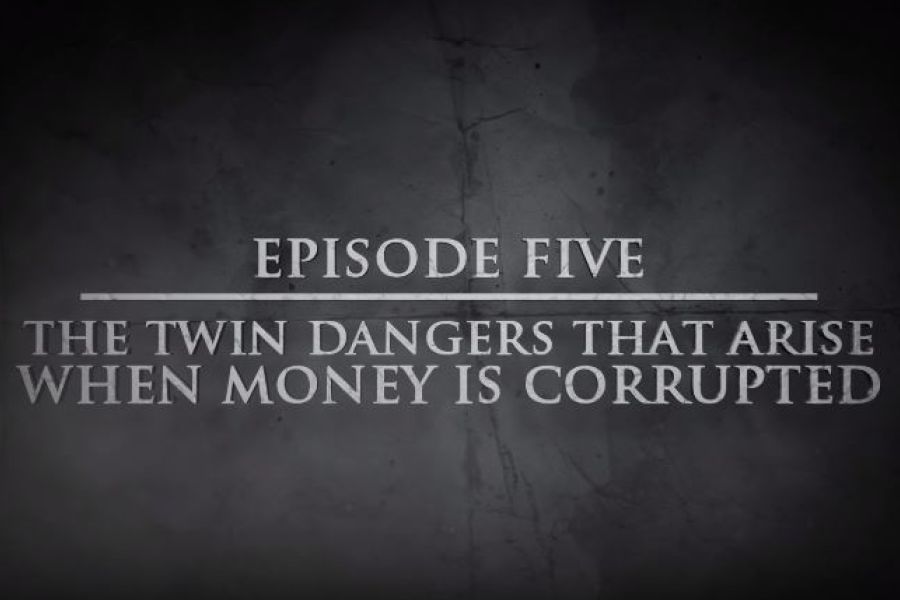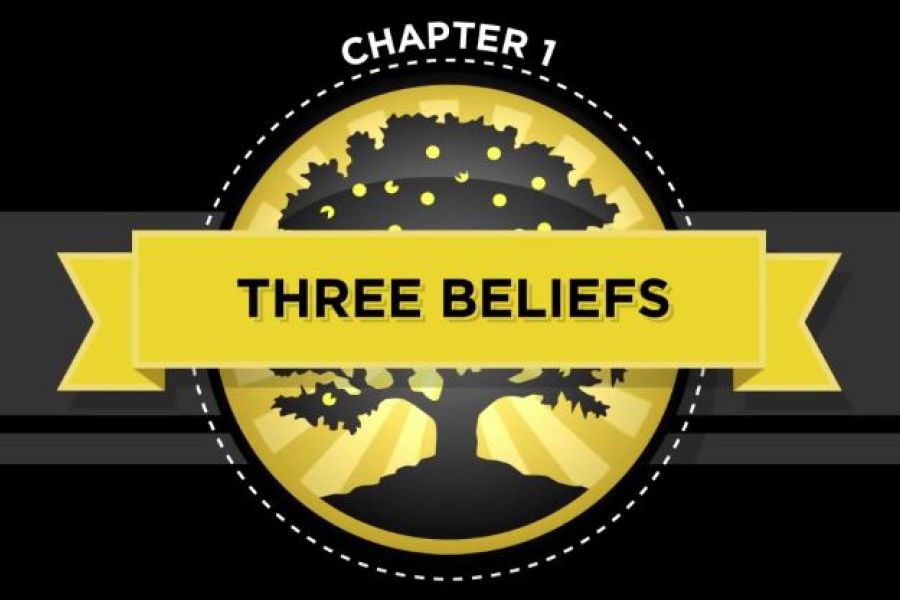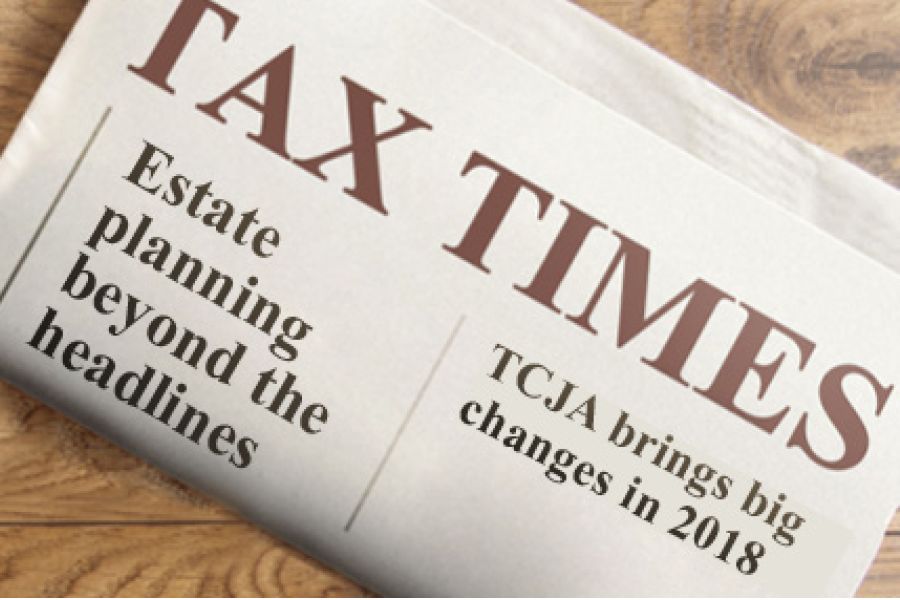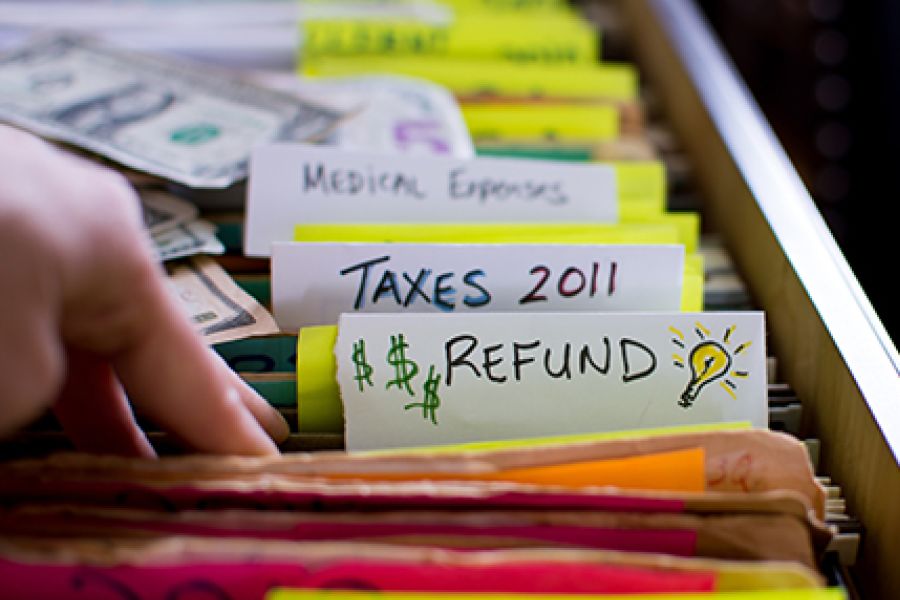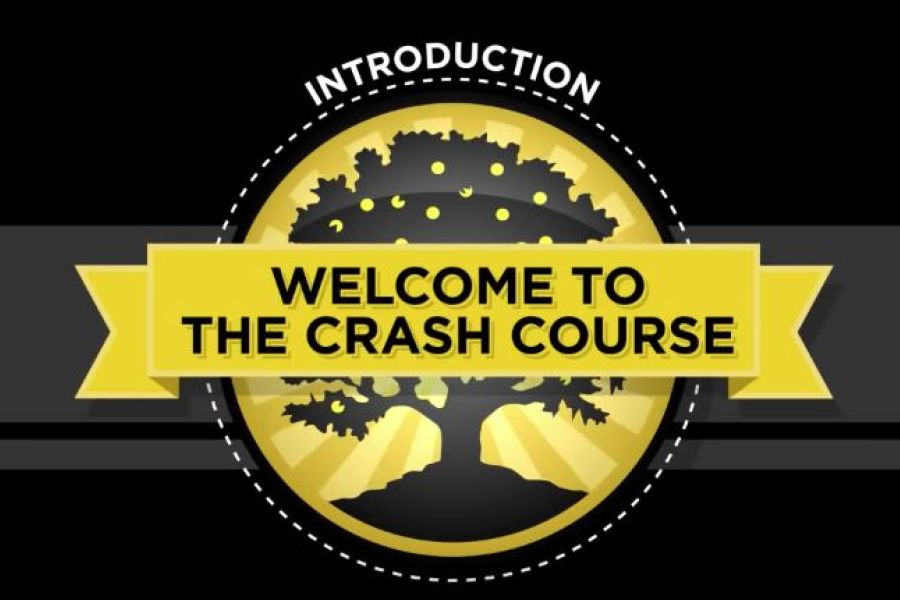
As posted to the GoldSilver YouTube Channel on 11/26/13 Welcome to the 5th episode of Michael Maloney's Hidden Secrets Of Money. In this installment, Mike travels to Berlin and Frankfurt, where he was able to film the money museum inside the Bundesbank . . . one of the world's largest Central Banks. This episode serves as an ideal primer for those waking up to the monetary matrix around them, as it clearly shows the history of true money and why it so important to our freedom. The quality of a society is directly proportional to the quality of its money. Debase a currency for long enough, and you end up with dangerous deficits, debt driven disasters, and eventually . . . delusional dictators. History proves this to be true. Prior...
With the April 17 individual income tax filing deadline behind you (or with your 2017 tax return on the back burner if you filed for an extension), you may be hoping to not think about taxes for the next several months. But for maximum tax savings, now is the time to start tax planning for 2018. It’s especially critical to get an early start this year because the Tax Cuts and Jobs Act (TCJA) has substantially changed the tax environment. Many variables A tremendous number of variables affect your overall tax liability for the year. Looking at these variables early in the year can give you more opportunities to reduce your 2018 tax bill. For example, the timing of income and deductible expenses can affect both the rate...
Now that small businesses and their owners have filed their 2017 income tax returns (or filed for an extension), it’s a good time to review some of the provisions of the Tax Cuts and Jobs Act (TCJA) that may significantly impact their taxes for 2018 and beyond. Generally, the changes apply to tax years beginning after 12/31/17, and are permanent, unless otherwise noted. Corporate taxation Replacement of graduated corporate rates ranging from 15% to 35% with a flat corporate rate of 21% Replacement of the flat personal service corporation (PSC) rate of 35% with a flat rate of 21% Repeal of the 20% corporate alternative minimum tax (AMT) Pass-through taxation Drops of individual income tax rates ranging from 0 to 4 percentage points (depending on the bracket) to...
As posted on the Peak Prosperity.com and the Chris Martenson's Peak Prosperity YouTube Channel Background The Crash Course has provided millions of viewers with the context for the massive changes now underway, as economic growth as we've known it is ending due to depleting resources. But it also offers real hope. Those individuals who take informed action today, while we still have time, can lower their exposure to these coming trends -- and even discover a better way of life in the process. In this Blog, I am presenting the 27 (inclusive of the introduction) installments of The Crash Course, one per week. Previous installments of "The Crash Course" can be found here: Blog (#311) Introducing "The Crash Course" Chapter 1 of 26: Three Beliefs Transcript Welcome to Chapter 1 of the Crash Course. It’s very important...
What 2017 tax records can you toss once you’ve filed your 2017 return? The answer is simple: none. You need to hold on to all of your 2017 tax records for now. But it’s the perfect time to go through old tax records and see what you can discard. The 3-year and 6-year rules At minimum, keep tax records for as long as the IRS has the ability to audit your return or assess additional taxes, which generally is three years after you file your return. This means you potentially can get rid of most records related to tax returns for 2014 and earlier years. (If you filed an extension for your 2014 return, hold on to your records at least until the three-year anniversary of when...
As posted on the Peak Prosperity.com and the Chris Martenson's Peak Prosperity YouTube Channel The next twenty years will be completely unlike the last twenty years. The world is in economic crisis, and there are no easy fixes to our predicament. Unsustainable trends in the economy, energy, and the environment have finally caught up with us and are converging on a very narrow window of time-the "Twenty-Teens." "The Crash Course" presents our predicament and illuminates the path ahead, so you can face the coming disruptions and thrive--without fearing the future or retreating into denial. In this video series (and associated book) you will find solid facts and grounded reasoning presented in a calm, positive, non-partisan manner. Our money system places impossible demands upon a finite world. Exponentially rising levels...
You may have breathed a sigh of relief after filing your 2017 income tax return (or requesting an extension). But if your office is strewn with reams of paper consisting of years’ worth of tax returns, receipts, canceled checks and other financial records (or your computer desktop is filled with a multitude of digital tax-related files), you probably want to get rid of what you can. Follow these retention guidelines as you clean up. General rules Retain records that support items shown on your tax return at least until the statute of limitations runs out — generally three years from the due date of the return or the date you filed, whichever is later (four years for California). That means you can now potentially throw out...
- 1
- 2
- 3
- 4
- 5
- 6
- 7
- 8
- 9
- 10
- 11
- 12
- 13
- 14
- 15
- 16
- 17
- 18
- 19
- 20
- 21
- 22
- 23
- 24
- 25
- 26
- 27
- 28
- 29
- 30
- 31
- 32
- 33
- 34
- 35
- 36
- 37
- 38
- 39
- 40
- 41
- 42
- 43
- 44
- 45
- 46
- 47
- 48
- 49
- 50
- 51
- 52
- 53
- 54
- 55
- 56
- 57
- 58
- 59
- 60
- 61
- 62
- 63
- 64
- 65
- 66
- 67
- 68
- 69
- 70
- 71
- 72
- 73
- 74
- 75
- 76
- 77
- 78
- 79
- 80
- 81
- 82
- 83
- 84
- 85
- 86
- 87
- 88
- 89
- 90
- 91
- 92
- 93
- 94
- 95
- 96
- 97
- 98
- 99
- 100
- 101
- 102
- 103
- 104
- 105
- 106
- 107
- 108
- 109
- 110
- 111
- 112
- 113
- 114
- 115
- 116
- 117
- 118
- 119
- 120
- 121
- 122
- 123
- 124
- 125
- 126
- 127
- 128
- 129
- 130
- 131
- 132
- 133
- 134
- 135
- 136



